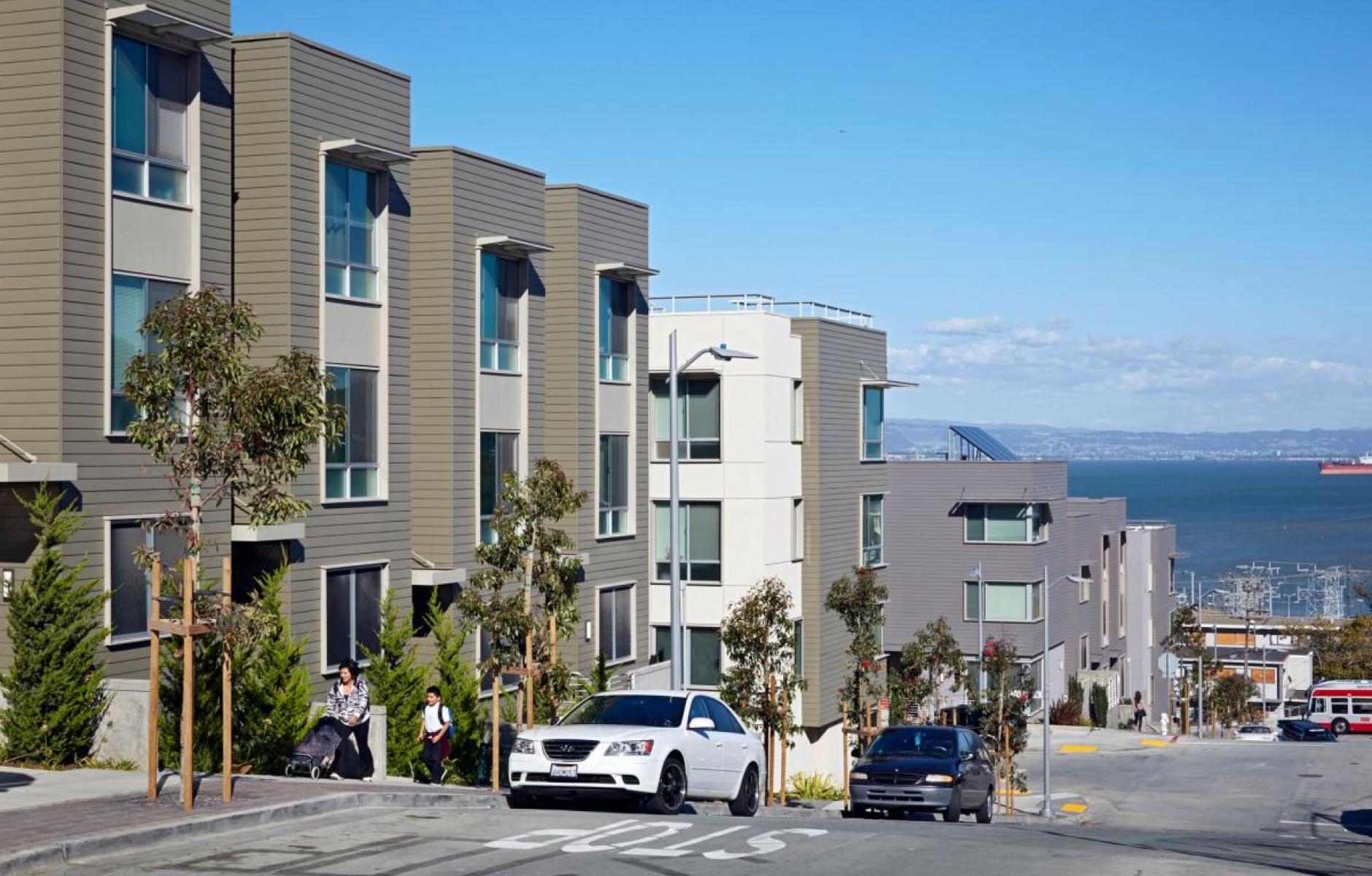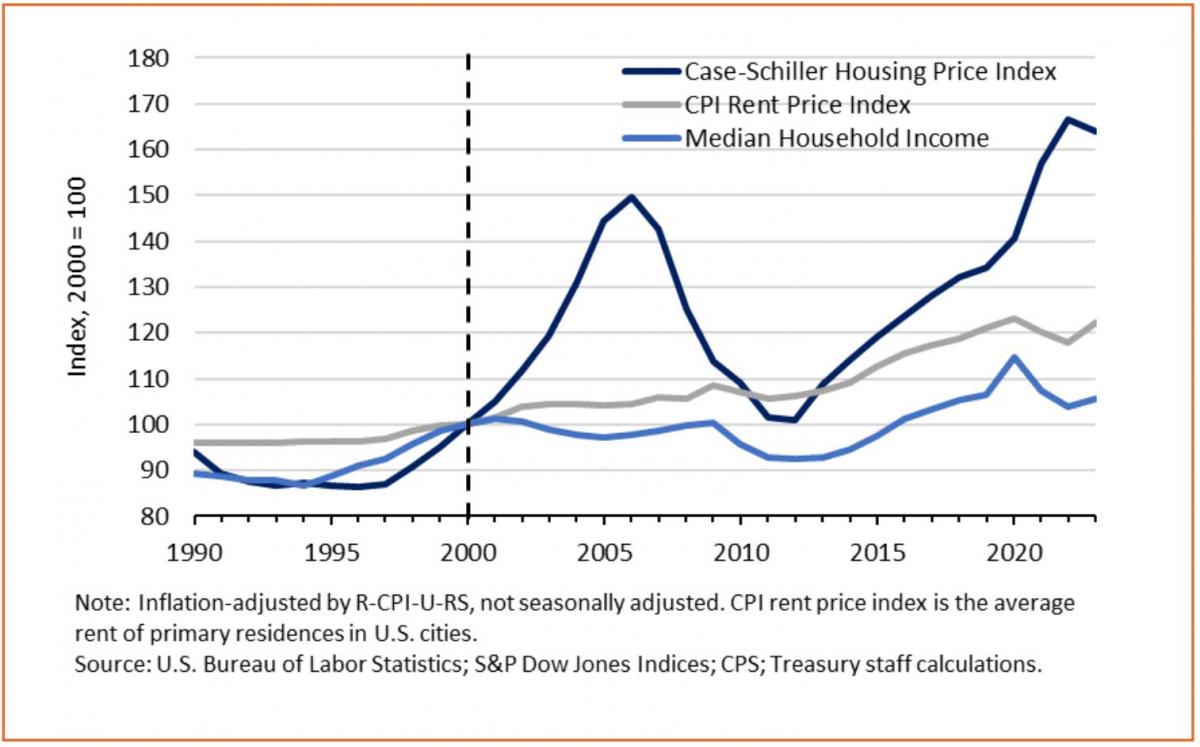
An agenda for the housing crisis
The New Way Home Agenda, a report by US Sen. Lisa Blunt Rochester (D-DE) on solutions to the US housing crisis, is a remarkably common-sense document on a complicated issue—the kind that an individual senator or member of Congress doesn’t often produce.
The 35-page document released last week advocates for an abundance and regulatory reform agenda that could garner bipartisan support. A focus on investing in neighborhoods of concentrated poverty and promoting upward mobility may also be broadly appealing. The attention to code reform, missing middle housing, and place-based interventions will resonate with urbanists.
The report starts with a blunt assessment of the problem. “In 1981, the median first-time homebuyer was 29 years old. In 2024, the median age is now 38 and represents just 24 percent of the market, the lowest share on record since the 1980s.”
One reason why young households are buying fewer homes is that housing prices have shot up out of proportion to inflation in incomes since 2000. See the graph below from the report.

The nation also has a supply problem. Below is a graph that shows we were producing significantly more housing per person 60 years ago than we do today. This was a time when household sizes were larger, indicating that our need for living spaces is greater per person today. Look at the green line in the graph below.

Blunt Rochester says the nation is short five million houses. The report blames several macro trends and policies, including “exclusionary zoning and land use regulations, that artificially restrict the supply of housing. Many of these policies have their roots in segregation and continue to fuel racial disparities in the housing market. In our urban cores, decades of suburban sprawl and shifting work patterns have left our communities under-resourced and underinvested. For the lowest-income individuals, the shrinking stock of deeply affordable housing is driving increased homelessness.”
These issues will be hard to address. But a core of responses is identified that could make an impact on housing in the US. As I reported previously, bipartisan legislation is moving forward that hits upon some of what Blunt Rochester is advocating. Many organizations, including CNU, contributed to the ideas in the New Way Home Agenda.
The agenda may resonate with a wide range of people. For example, several lists outline the “Keys to a New Way Home,” most of which don't sound controversial. The first addresses boosting a more affordable housing supply:
- Establish new best practices for zoning and land use law.
- Provide resources to help communities rehaul their regulations.
- Leverage national expertise at HUD to empower state and local governments.
- Streamline bureaucracy and cut red tape.
- Fund grant programs that reduce barriers to housing at the local level.
- Support the creation of state and local housing plans.
- Empower faith-based organizations and other trusted community partners to provide more housing.
- Convert underutilized and abandoned buildings into housing.
- Pilot innovative technologies to better plan and design communities.
- Reward communities that are increasing their housing supply.
A similar list is put together for revitalizing cities:
- Invest in neighborhoods of concentrated poverty and systemic underinvestment.
- Transform entire neighborhoods through place-based investments.
- Leverage public-private partnerships.
- Build high-quality, mixed-income housing.
- Promote upward mobility through supportive services.
- Reconnect communities impacted by historically harmful transportation infrastructure projects.
- Address the public housing deferred maintenance backlog.
- Preserve the supply of affordable housing in communities.
- Transfer at-risk affordable properties to qualified owners.
- 10.Provide loans to improve HUD-assisted housing.
- 11.Reduce administrative barriers to rental assistance.
The report also endorses some programs that are likely to appeal more to progressive cities and states, such as the use of community land trusts to permanently remove the cost of land from some housing, allowing people to purchase housing at a lower cost, and sell without profiting from the rise in land costs. The report also calls for increased funding of the Choice Neighborhoods program, which is HUD’s second generation of HOPE VI. Choice Neighborhood employs new urbanist design in walkable neighborhoods and has, on a limited scale, “lifted whole neighborhoods” out of poverty, the report explains.
“That is why I am fighting to pass my Choice Neighborhoods Initiative Act, S.2051, which permanently authorizes and expands the successful Choice Neighborhoods program,” Blunt Rochester says. “For every $1 of Choice Neighborhoods funding, $7.50 in private and other public funds are invested in target neighborhoods.”
There is more, such as First-Time Homebuyer Tax Credits.
“The path forward requires collaboration across all levels of society. It will take building housing supply, investing in neighborhoods of concentrated poverty and systemic underinvestment, bringing housing costs within reach for families, piloting innovative affordability models, and making our tax code work for low- and moderate-income buyers and renters,” the report concludes.




